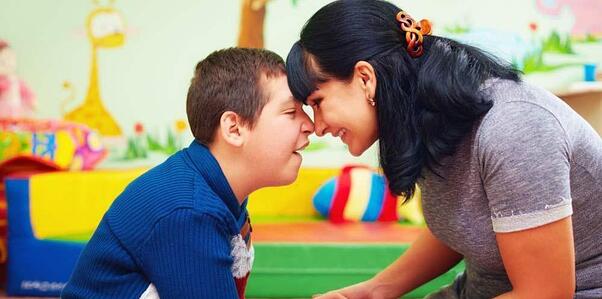10 Ways to Keep Your Autistic Child Engaged in Public!
Today is not the time for autistic children to be identified as abnormal or insane. Today we know that autistic children are not uncommon, but a little different. With the advancement of science and the spread of awareness about autism, many autistic children are now growing up in the right way through proper healthcare and life skill courses. With early intervention, autistic children can do all the work very easily, like everyone else.
However, in a relatively backward country like ours, many autistic children have not yet received proper training due to poverty, lack of education and awareness. As a result, their parents/guardian(s) need some special training to raise them. As we don’t know at which stage you are, we will discuss here some of the practices required for the social engagement of those who are trained or under training and those who are not.
Skills needed for engagement in public
Not just the autistic ones, every child needs some skills and ethical sense and a properly developed sense of behavior to interact with people in a public place. We can identify four basic skills that are required for your children that need special care for building a proper public engagement-
●Conversational skills- Such as whom to talk to, what to talk about, behavior during a conversation, etc
●Play skills- Like how to play different kinds of games, how to play with another child, how to play in a group
●Emotional skills- For an understanding of feelings and reactions
●Problem-solving skills- To deal with an unknown situation or make an instant decision
10 Ways to develop required skills
Firstly, the parents/guardian(s) need to keep a sufficient amount of quality time for the child to enhance their skills for engagement in public.
We hope the parents/guardian(s) and their children under proper training have already built or are building the child’s basic sensations.
If you are involved in such training, your child will be able to engage in social interactions more easily if you follow the following exercises regularly.
- Practicing Role Play:
This is a very simple method by which your child can be taught to interact and react. You can play a social character or your child’s playmate as in a game where children play together or practice social interaction with the imaginary characterization of available interesting objects. Alternatively, you can talk about a thing or event that your child also has seen or has a basic idea about. These kinds of homely practices develop your child’s response.
- Practicing Games:
You need to practice indoor games, beginning with the simple ones, with your child. Games like card games, board games, and games that children used to play together indoors and outdoors. Regular practice of these games will bring mental development, intense the rate of reaction, and develop your child’s playing skills.
- Telling Social Stories:
You can tell conventional stories or stories about your family members or social incidents relatable to your child. These stories can enhance social sense and the horizon of imagination.
- Addressing Emotions:
You need to keep an eye on your child’s emotional state. And during the play sessions, you can configure proper responses regarding the different emotions of your child. Additionally, you need to be careful about the emotional transitions of your child where he/she may need your emotional support.
- Providing Visual Support:
Showing social engagements, public interactions or kinds of activities your child should do in public to the child in life or any other visual medium helps develop behavior and interaction skills. Visual memory, being very strong, helps your child and provides an example to him of engagement in public.
- Training Social Skills:
If you can provide proper training by any professional or can avail of any skill development program, it will be very helpful for your child’s fast development.
If you haven’t gone through or are not under any training, you can follow the following steps to provide proper guidance to your child.
- Engage in household activities:
A little engagement of your child in the daily household activities will develop you and your child’s mutual understanding and sense of responsibility towards each other which will help practice the previously mentioned six ways.
-
Look for a supportive school: A school where your child can get necessary grooming and proper care will be very helpful as it is a public place with a vast scope of interaction with others.
-
Use technological supports: Technological advancement has brought so many new systems and apps helpful for the development of autistic children.
-
Find a strong support team: With all these requisites, a healthy and strong supporting circle around your child is essential for the safety and confidence-building of your child.
Final Thoughts
As a responsible parent, we hope you will follow these well-established strategies to enhance the ability to engage and the quality of interaction of your child in public.

